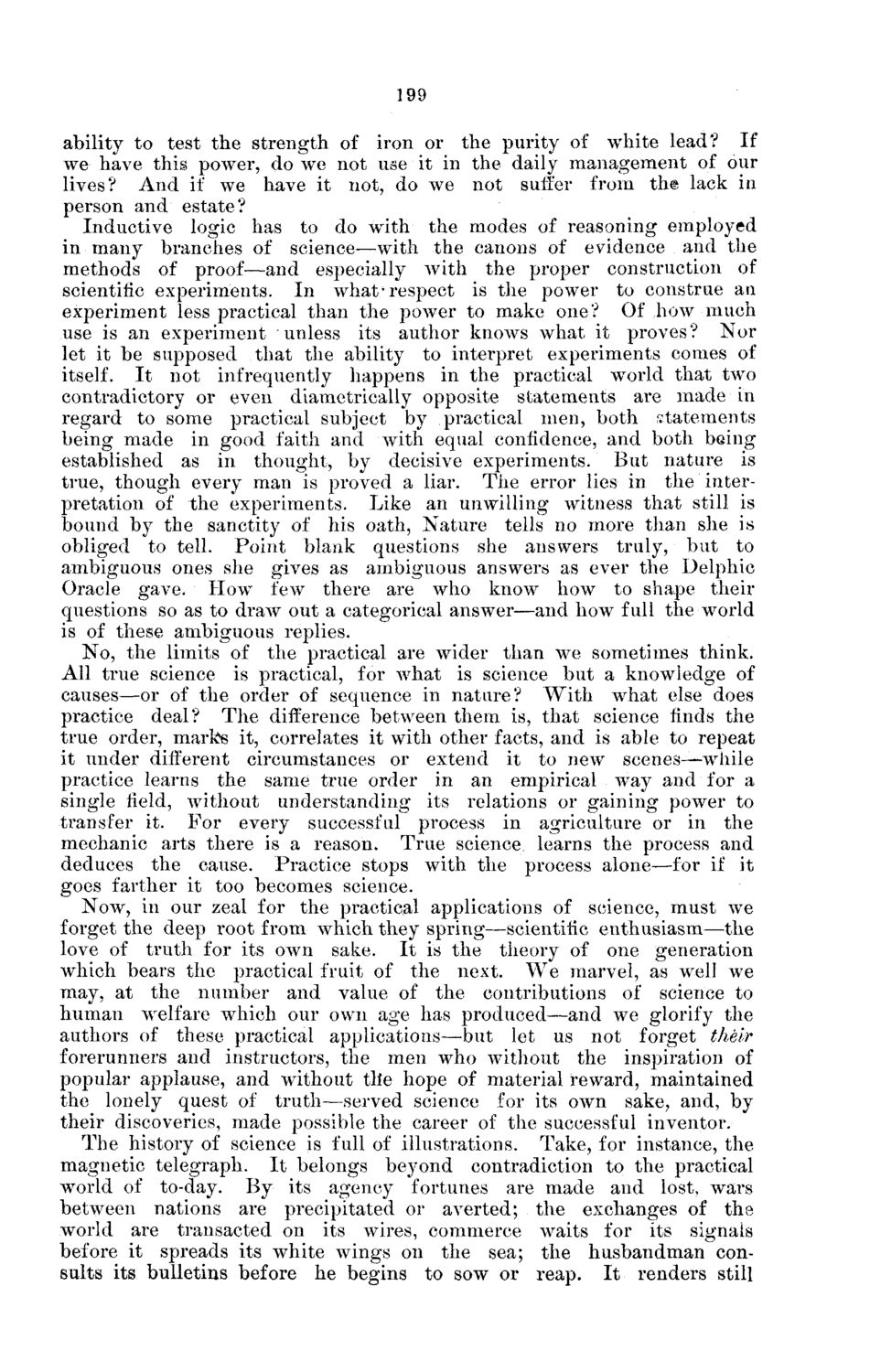| |
| |
Caption: Board of Trustees Minutes - 1878
This is a reduced-resolution page image for fast online browsing.

EXTRACTED TEXT FROM PAGE:
199 ability to test the strength of iron or the purity of white lead? If we have this power, do we not use it in the daily management of our lives? And if we have it not, do we not suffer from the lack in person and estate? Inductive logic has to do with the modes of reasoning employed in many branches of science—with the canons of evidence and the methods of proof—and especially with the proper construction of scientific experiments. In what* respect is the power to construe an experiment less practical than the power to make one? Of how much use is an experiment unless its author knows what it proves? Nor let it be supposed that the ability to interpret experiments comes of itself. It not infrequently happens in the practical world that two contradictory or even diametrically opposite statements are made in regard to some practical subject by practical men, both statements being made in good faith and with equal confidence, and both being established as in thought, by decisive experiments. But nature is true, though every man is proved a liar. The error lies in the interpretation of the experiments. Like an unwilling witness that still is bound by the sanctity of his oath, Nature tells no more than she is obliged to tell. Point blank questions she answers truly, but to ambiguous ones she gives as ambiguous answers as ever the Delphic Oracle gave. How few there are who know how to shape their questions so as to draw out a categorical answer—and how full the world is of these ambiguous replies. No, the limits of the practical are wider than we sometimes think. All true science is practical, for what is science but a knowledge of causes—or of the order of sequence in nature? W i t h what else does practice deal? The difference between them is, that science finds the true order, marks it, correlates it with other facts, and is able to repeat it under different circumstances or extend it to new scenes—while practice learns the same true order in an empirical way and for a single field, without understanding its relations or gaining power to transfer it. For every successful process in agriculture or in the mechanic arts there is a reason. True science learns the process and deduces the cause. Practice stops with the process alone—for if it goes farther it too becomes science. Now, in our zeal for the practical applications of science, must we forget the deep root from which they spring—scientific enthusiasm—the love of truth for its own sake. It is the theory of one generation which bears the practical fruit of the next. W e marvel, as well we may, at the number and value of the contributions of science to human welfare which our own age has produced—and we glorify the authors of these practical applications—but let us not forget their forerunners and instructors, the men who without the inspiration of popular applause, and without tile hope of material reward, maintained the lonely quest of truth—served science for its own sake, and, by their discoveries, made possible the career of the successful inventor. The history of science is full of illustrations. Take, for instance, the magnetic telegraph. It belongs beyond contradiction to the practical world of to-day. By its agency fortunes are made and lost, wars between nations are precipitated or averted; the exchanges of the world are transacted on its wires, commerce waits for its signals before it spreads its white wings on the sea; the husbandman consults its bulletins before he begins to sow or reap. It renders still
| |